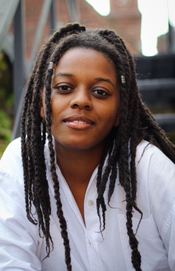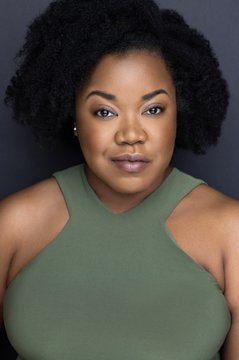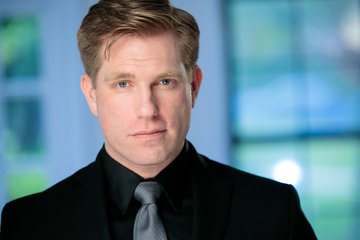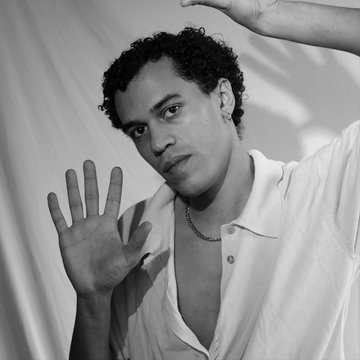"Write me a woman who fights for what she wants."
The Dark Lady is a witty and sensual duet that reclaims the story of a fascinating woman who was almost lost to history—Emilia Bassano. Through her eyes, this thrilling love story helps us both understand and challenge our love of Shakespeare. Emilia was multiracial and multilingual, and the first Englishwoman to publish her own poetry. And she may also be the answer to a 400-year-old mystery—just who was the “Dark Lady” that Shakespeare spoke of with such passion in his sonnets?
Come for the show, leave with a prize.

Come for the show and leave with a prize! Celebrate Juneteenth with th Dark Lady and enter to win one of two raffle baskets packed with goods from Black-own business.
Hometown writers, big-stage dreams.

Join a group of Atlanta-based playwrights who share their thoughts on process, possibility, and making space for your work. Discover what it takes to develop a personal voice, community, and creative courage.
Panelist: Anterior Leverett, Valetta Anderson, Amina McIntyre
Moderated by Angela Schiller
*Free to Attend but RSVP Required
Real talk. Bold voices. Big questions.

Explore who gets written into history—and who doesn’t—with Jessica B Hill, the playwright of The Dark Lady.
*Free to Attend but RSVP Required
THE MYSTERY
The question of the identity of the Dark Lady is an unsolved, controversial issue because of the insufficiency of historical detail. Some believe that she might be of Mediterranean ancestry, with the dark hair and dark eyes common in Greece, Spain, Italy, and southern France. Other scholars have suggested, given Shakespeare's description of her dark, dun-colored skin and black wiry hair, that the Dark Lady might have been a woman of African ancestry. Ultimately, "none of the many attempts at identifying the dark lady…are finally convincing"
Holland, Peter (23 September 2004). "Shakespeare, William (1564–1616)". ODNB. Oxford Dictionary of National Biography (online ed.). Oxford University Press. doi:10.1093/ref:odnb/25200. (Subscription or UK public library membership required.)
MEET THE WRITER
Jessica B. Hill is an actress, playwright and educator originally from Montreal. The Dark Lady premiered in 2023 and has now been performed across Canada. It also recently had a reading with Red Bull Theatre in NYC. The play has taken home six awards and has been nominated thirteen times.
As an actor, Jessica has been one of the Stratford Festival's new generation of leading ladies for eight seasons, she is currently starring there as Elinor in Sense and Sensibility and Mme de Merteuil in Dangerous Liaisons. Past Stratford credits include Viola in Twelfth Night, Lady Anne in Richard III and Helen in All's Well That Ends Well.

MEET THE DIRECTOR
Alexis Kulani Woodard (she/her) is thrilled to be returning to Synchronicity Theatre since serving as the assistant director for the Suzi Award-winning world premiere of Hands of Color. She is a 2024 Princess Grace Award Winner in Theatre and the incoming Associate Artistic Director of Compagnia de' Colombari.
Select Directing Credits include: Metamorphoses, SORT, Moe’s a D*ck, Stray Dogs, Measure for Measure (Yale Drama), Every Brilliant Thing (Yale Cabaret), Hamlet (The TINY Theater Company, Alliance Theatre: Guest Artist Series); HANDS UP: 7 Playwrights, 7 Testaments and Do You Love the Dark? (Alliance Theatre). Her work on HANDS UP: 7 Playwrights, 7 Testaments earned the production six Suzi Bass Award Nominations, including Best Direction, and a win for Outstanding Social Justice Production. She also directed Lungs by Duncan Macmillan, which was shown at the National University of Theatre and Film “I.L. Caragiale Bucharest” and other venues around Romania. As a Spelman Leadership Fellow at the Alliance Theatre, Alexis served as the Co-Artistic Director of The Alliance’s inaugural 2020–21 Digital Season, where she produced Laugh Track, BackStage Atlanta, Spotlight Studio, and From the Ashes. Alexis also directed From the Ashes, an original adaptation of Ray Bradbury’s Fahrenheit 451 which was created in collaboration with the Alliance’s Teen Ensemble.
She has worked with directors Liz Diamond, Tamilla Woodard, Laurie Woolery, Hana Sharif, Leora Morris, and Khalia Davis. Associate directing credits include A Christmas Carol: The Live Radio Play, Working (Alliance Theatre), and the world premiere tri-production of Dream Hou$e (Alliance Theatre, Long Wharf Theatre, Baltimore Center Stage). She also has served as assistant director for Escaped Alone (Yale Repertory Theatre), A Christmas Carol (Repertory Theatre of St. Louis), and A Kids Play About Racism (Bay Area Children’s Theatre). Upcoming: The Notebook, First National Tour (Assistant Director). MFA: David Geffen School of Drama at Yale.

Notes on " The Dark Lady" from Jessica B.
Out of curiosity, I decided to read all of Shakespeare’s sonnets while preparing for rehearsals in 2020. When I reached the so-called “Dark Lady” ones, I felt like I was reading them for the first time. I was struck by how jealous, violent and cruel they were: a side to Shakespeare we never really talk about. How strange to spend that much time and energy writing rhyming hate-poetry! Who hurt you, Bill? What’s her side of the story?
I decided to go on an exoneration quest.
Enter Emilia Bassano, the closest contender for “the Dark Lady.” Emilia’s life story somehow encompasses the breadth of Shakespeare’s work. It is truly remarkable, and the more I learned, the more it gave me goosebumps. But it wasn’t until I read her poetry (because, yes, she wrote too) that the floor caved in underneath me. There was something about her strong and fervent female voice... It was shades of Kate, Beatrice, Rosalind, Juliet, Paulina and Cleopatra, all in one. Her infinite variety.
What if these two great minds did more than just cross paths?
Emilia Bassano was the first Englishwoman to publish her work as a professional poet. Her book of poems is filled with letters of appeal to powerful women. She wanted to create a community of female patrons, supporters and readers, at a time when such a concept didn’t even exist.
I’ve spent the year falling in love with Bassano and what she was desperately trying to accomplish. This play is my attempt to bring her out of the dark, and give her the chance to reclaim her story.
Cast + Crew

Brittany Deneen
Emilia

Joe Sykes
William

Andrew Cleveland
Musician

Destiny Danielle
Emilia - Swing

Nathan VanAtta
William - Swing

Jodi Lara
Musician - Swing

